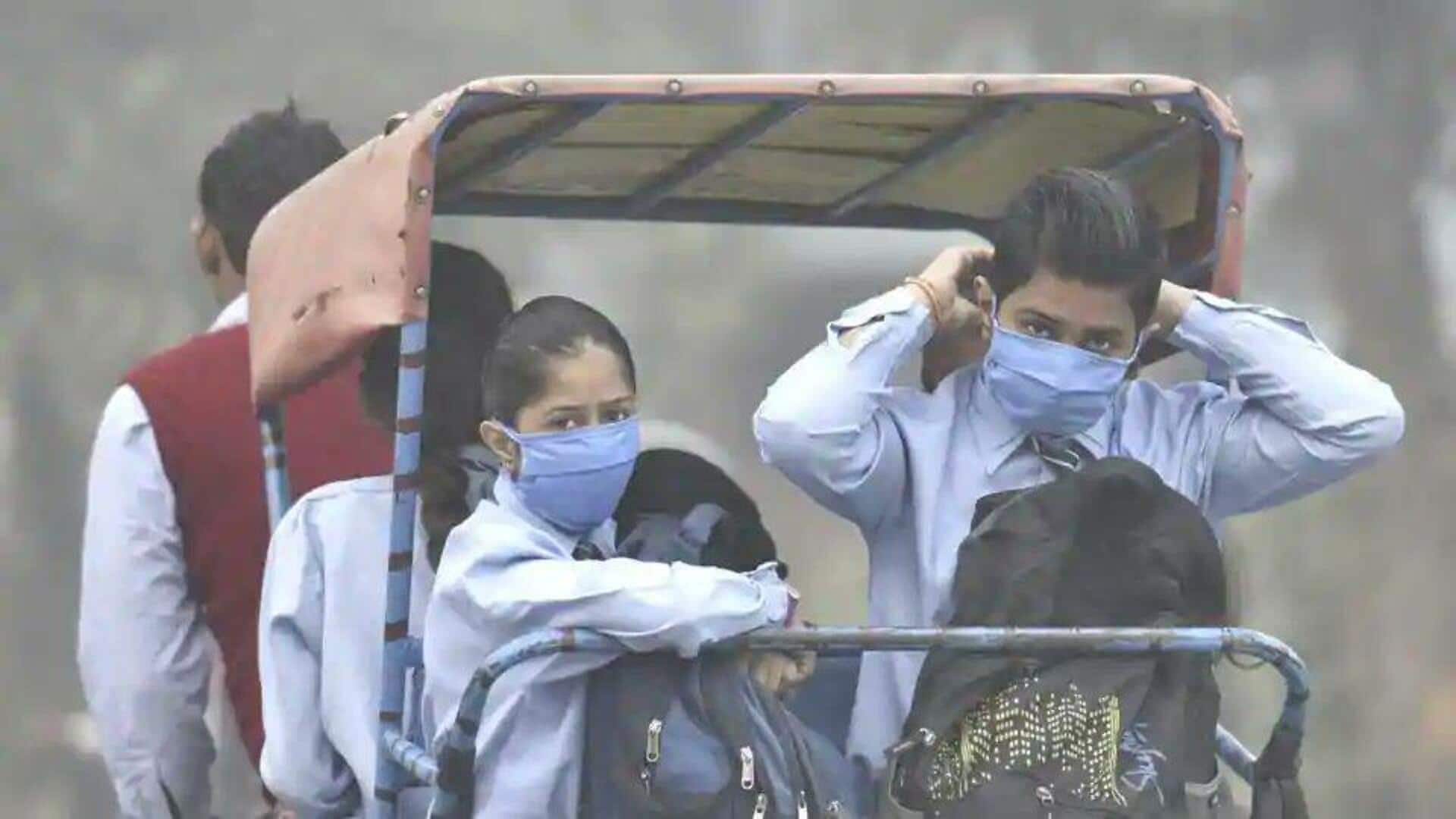
Haze engulfs Delhi, AQI set to worsen over weekend
What's the story
Delhi's air quality has been on a steady decline, with the Air Quality Index (AQI) teetering on the edge of the "very poor" category.
The AQI stood at 283 on Thursday, a sharp rise from Wednesday's 230.
The Indian Institute of Tropical Meteorology (IITM) predicts that the downward trend will continue until Saturday before worsening to "very poor" by Sunday due to unfavorable meteorological conditions for pollutant dispersion.
Pollution factors
Farm fires and calm winds contribute to Delhi's pollution
The annual dip in Delhi's air quality can be largely attributed to receding monsoon winds, farm fires in neighboring states, and calm winds.
This year, Punjab reported 1,212 farm fire cases—the lowest since 2020.
However, an upward trend in such incidents has been observed in Haryana and Uttar Pradesh.
The Commission on Air Quality Management (CAQM) invoked Stage 1 of the Graded Response Action Plan (GRAP) after a significant AQI drop post-Dussehra.
Emission impact
Vehicular emissions major contributor to Delhi's pollution
The Decision Support System (DSS) found that vehicular emissions were the biggest contributor to Delhi's pollution, contributing 12.25% to PM2.5 levels.
Other major contributors include emissions from Gautam Budh Nagar and Bulandshahr.
Stubble burning only contributed around 0.8% to PM2.5 levels on Thursday, showing that local factors contribute more to the city's air quality than previously believed.
Minister's appeal
Delhi's environment minister calls for immediate action
Delhi's Environment Minister Gopal Rai has called for immediate action to curb pollution at hotspots like Anand Vihar, where the AQI has fluctuated between "very poor" and "severe."
The average AQI at the station touched "severe" in the past few days at a time when Delhi was hovering in the "poor" zone.
India Gate and surrounding areas saw AQI drop to 270, categorized as "poor," on Friday morning.